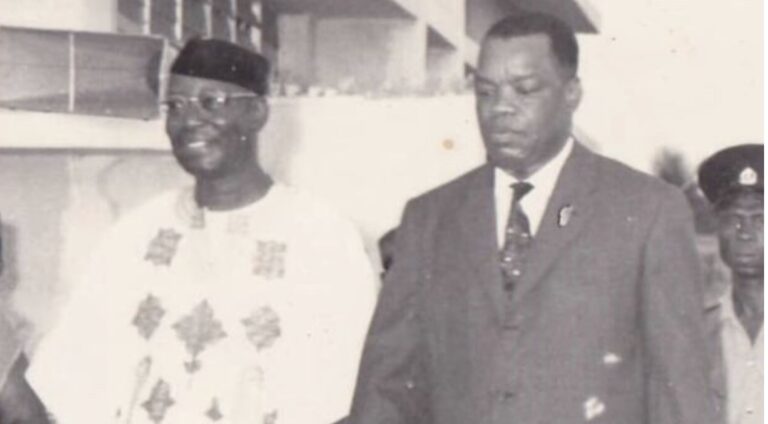Sir Louis Odumegwu Ojukwu, a man who arrived in Lagos in 1929 with little more than ambition and a dream, went on to become Nigeria’s first billionaire by the time the country gained independence in 1960. Known as the richest man in Nigeria during the pre-independence era, his wealth rivaled that of global elites, and his entrepreneurial journey remains a remarkable testament to resilience, vision, and excellence.
From Humble Beginnings to Entrepreneurial Triumph
Born in 1909 in Nnewi, Anambra State, Louis Odumegwu Ojukwu was the only son in a modest household. After completing his primary education in Asaba and secondary schooling at Hope Waddell Training Institute in Calabar, he moved to Lagos in 1929 to begin his career as a tyre sales clerk at John Holt. However, his entrepreneurial spirit couldn’t be contained, and it wasn’t long before he noticed a growing demand from Igbo traders for textiles, alongside the tyres he was selling.
This insight led him to establish Ojukwu Stores in Onitsha, marking his entry into entrepreneurship. By 1930, Ojukwu expanded into transportation, purchasing a second-hand truck to move his goods. This venture laid the foundation for Ojukwu Transport Company, which would grow into one of the largest and most influential transport companies in West Africa.
A Visionary Entrepreneur: Expanding His Empire
As his transport business flourished, Ojukwu was not one to rest on his laurels. By the late 1930s, his fleet had expanded, and by the 1950s, he owned over 200 trucks, making his transport business one of the largest in West Africa. The post-war demand for West African raw materials spurred even greater growth.
But transportation was just the beginning. Ojukwu’s business acumen saw him diversify into various sectors:
-
Textile trading through Ojukwu Textiles
-
The cement industry
-
Stockfish imports, which he pioneered in Nigeria
-
Real estate investments
Ojukwu’s business empire also spanned the financial sector, where he made significant contributions, including serving as the first president of the Nigerian Stock Exchange in 1960. Additionally, he held leadership roles in multiple high-profile Nigerian companies, such as Shell Oil Nigeria, Guinness Nigeria, Costain West Africa, Nigerian Cement Factory, and the Nigerian National Shipping Line.
A Billionaire’s Wealth and Influence
By the time Nigeria gained independence in 1960, Sir Ojukwu’s wealth was nothing short of staggering. Estimates suggest his fortune would be worth anywhere between $4 billion and $40 billion in today’s value, depending on asset valuation and compound interest.
His portfolio included:
-
Over 5,000 trucks in his transport fleet
-
More than 100 ships in his shipping business
-
Real estate holdings and a diverse stock portfolio
He also held key positions, including:
-
President of the African Continental Bank
-
Chairman of Nigerian Cement Company (NIGERCEM)
-
CEO of Ojukwu Transport Company
-
Chairman of Nigerian National Shipping Line, with a fleet of over 100 ships
-
Director in companies like Shell D’Arcy Petroleum, Guinness Nigeria, Nigerian Coal Corporation, and many others
One of the most iconic symbols of his status was his Rolls-Royce Silver Wraith, which was famously used to chauffeur Queen Elizabeth II during her visit to Nigeria in 1956.
A Mentor and Philanthropist
Ojukwu was not just a businessman; he was a mentor and a philanthropist. Some of his early drivers, such as Chief Ilodibe (known for his transport company, Ekene Dili Chukwu) and Chief Izuchukwu, would go on to become transport moguls themselves. His generosity helped build Nnewi into an entrepreneurial hub, earning it the nickname “Japan of Africa” for its thriving manufacturing sector.
Legacy and Influence
Sir Louis Odumegwu Ojukwu passed away in 1966 in Nkalagu, Ebonyi State, just a year before the outbreak of the Nigerian Civil War. Despite his early passing at the age of 57, his legacy endures. He remains a symbol of Igbo entrepreneurship, African excellence, and the potential for generational wealth.
His son, Chukwuemeka Odumegwu Ojukwu, who would later become a prominent figure as the leader of the secessionist state of Biafra during the Nigerian Civil War, carried forward his father’s indelible mark on Nigerian history.
Ojukwu’s life story is a powerful reminder that vision, determination, and hard work can transcend circumstances. He set a precedent for the business moguls who followed, including Aliko Dangote, and remains a revered figure in Nigeria’s rich history of entrepreneurial success.

